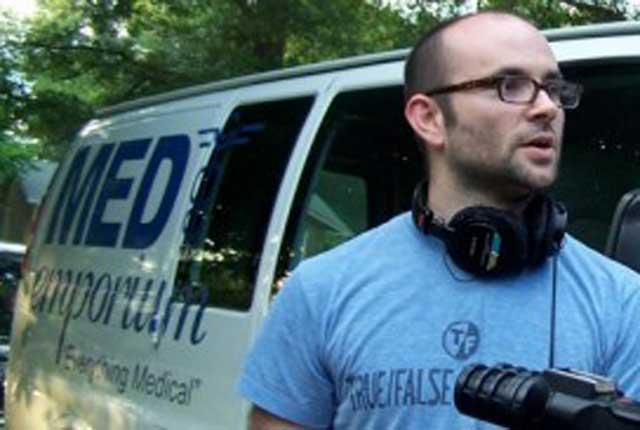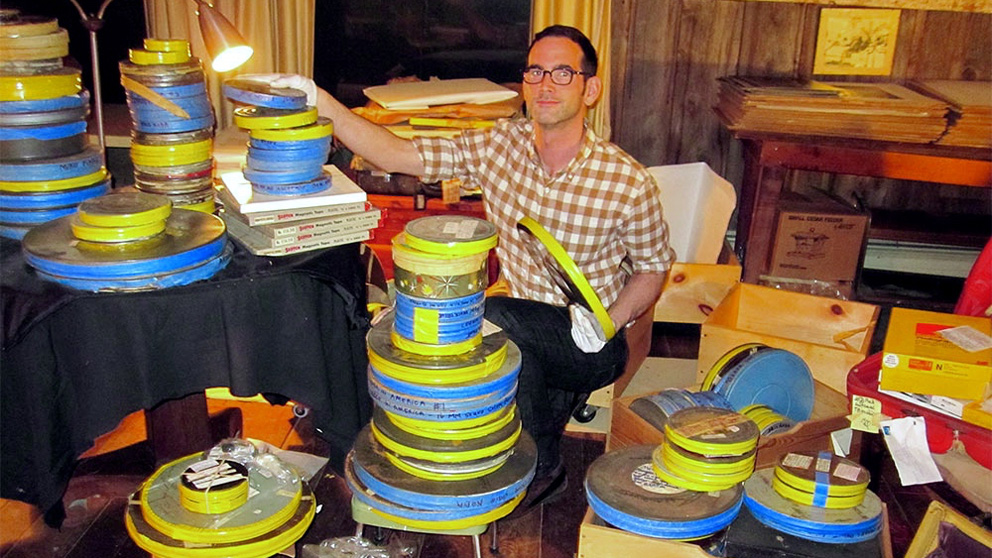Filmmaker Derives Passion From Subjects Who Pursue Dreams

 Filmmaker Robert Greene’s career making documentaries began with a paper he wrote on Rebel Without a Cause in Tom Wallis’ Intro to Film class at NC State. Until that paper, Greene thought movies were not capable of being deep, truthful investigations into the soul.
Filmmaker Robert Greene’s career making documentaries began with a paper he wrote on Rebel Without a Cause in Tom Wallis’ Intro to Film class at NC State. Until that paper, Greene thought movies were not capable of being deep, truthful investigations into the soul.
“The way Tom was talking about these movies, there was no way a movie was meant to be that deep,” says Greene, a 2000 CHASS graduate. But an analysis of the James Dean classic convinced him that movies could have depth. “It convinced me,” he says, “movies could be.”
And now, some 15 years later, Greene and 4th Row Films, the production company he’s involved with along with two other partners, have made seven films. Greene serves as director and/or editor on the projects. His passion for documentaries comes by default and an eye for honest portrayals of real people.
“I wrote some screenplays that sucked,” he says. “Writing a screenplay and dialogue, I’d rather be waterboarded. …I think I cared about real stories in a way.”
4th Row currently has three movies in theaters across the U.S. All In: The Poker Movie, a journey into the poker subculture, premiered last Friday at Cinema Village in New York City and will be available on video on demand April 24. Fake It So Real, a look at the big dreams of independent professional wrestlers in small-town North Carolina, is ending a run on the West Coast. And Kati with an I, an intimate look at at Greene’s teenage half-sister in Alabama who is about to graduate high school, is opening in Seattle.
Greene likes showing the essence of truth in these films, putting people front-and-center along with their hopes, dreams and faults. “My films are very loving to the subjects,” he says. “I’m very protective of them as people.”
 Chris Moneymaker, a mere nobody who hit it big by winning millions in the 2003 World Series of Poker’s main event, is one of those subjects in All In. “Moneymaker is kind of the soul of the movie,” Greene says. “He says, ‘I was a fat, drunk, degenerate gambler.’ He figured he could take his gambling problem and use it as a skill. …He transformed himself.”
Chris Moneymaker, a mere nobody who hit it big by winning millions in the 2003 World Series of Poker’s main event, is one of those subjects in All In. “Moneymaker is kind of the soul of the movie,” Greene says. “He says, ‘I was a fat, drunk, degenerate gambler.’ He figured he could take his gambling problem and use it as a skill. …He transformed himself.”
The Moneymakers of poker or the professional wrestlers of the rural South interest Greene because of their passion, and sometimes obsessiveness, to turn nothing into something.
“You can make films about people who are passionate about things,” he says. “They take their art, their things so seriously. When they talk about poker or cards, they’re really talking about life. …It’s like an American dream.”
By Chris Saunders.
This article first appeared in the NC State Alumni Association’s Red and White for Life blog.
- Categories:

